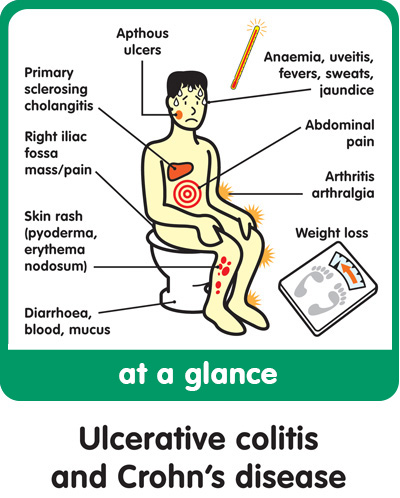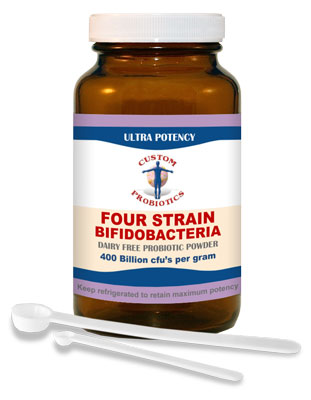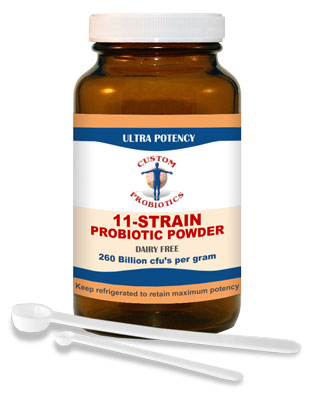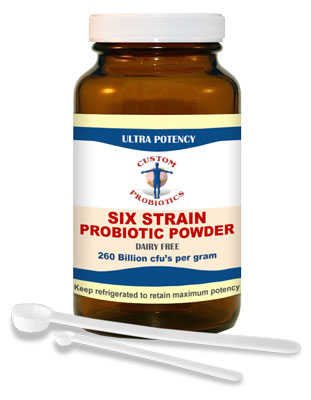Colitis

Ulcerative Colitis is a chronic condition of the colon and rectum, in which inflammation occurs along with ulceration; according to conventional medicine it is incurable. Diagnosis is usually by means of colonoscopy and mucosal biopsy. Initial treatment for flare-ups is usually administration of steroids such as prednisolone.
The hallmark symptom is blood and mucus in the stools, along with abdominal pain, frequent bowel movements and diarrhoea. Patients may also experience
Fatigue
Weight loss
Loss of appetite
Rectal bleeding
Loss of body fluids and nutrients
About 50% of patients with ulcerative colitis have mild symptoms while others suffer frequent fever, bloody diarrhoea, nausea, and severe abdominal cramps. Ulcerative colitis may also induce problems such as arthritis, osteoporosis, skin rashes, and anemia. It is not known why problems occur outside the colon but scientists think such complications may occur when the immune system triggers inflammation in other parts of the body. Some of these problems go away when the colitis is treated.
There are cycles of attack and healing which result in the narrowing of the intestinal tract, causing complications. Theories about what causes this condition abound, but none have been conclusively proven. The most popular theory is that the body’s immune system reacts to a virus or a bacterium by causing ongoing inflammation in the intestinal wall. People with ulcerative colitis have abnormalities of the immune system, but it is not known whether these abnormalities are the cause or a result of the disease.
As a result of the condition, water and minerals are not well absorbed, so there is an escalation of ill health, loss of appetite, weight loss, and possible dehydration and anemia, as well as general fatigue.
Ulcerative colitis affects only the innermost lining of the colon, and is continuous throughout the colon. In addition, UC can cause inflammation in the eyes, skin and joints, liver disease, kidney stones and colon cancer.
No single test is sufficient to diagnose this condition, and sufferers are often put through an endless round of endoscopic, radiological and histological assessments, laboratory testing and bowel studies in order to come up with a definitive diagnosis. Diagnosis can be complicated by the fact that ulcerative colitis mimics several other conditions such as intestinal bacterial tuberculosis, endometriosis of the bowel, diverticulitis, lymphoma, and food allergy. Certain drugs like NSAID’s, sulphasalazine and gold salts can all cause inflammatory symptoms.
Ulcerative colitis affects approx 95,000 people in the UK – that’s about 1 in 600, with about 5,500 new cases are diagnosed each year.
One of the current theories regarding Ulcerative Colitis revolves around a particular immune system cytokine, IL-17. This cytokine was only discovered in 2006, but is found in almost all autoimmune pathologies or diseases. We have known for some time that some probiotic bacteria can help reduce the severity of the inflammation in many cases of UC, without really knowing the specific mechanism. Now it appears that researchers in Japan have discovered a potential explanation. IL-17 is a very potent pro-inflammatory cytokine, that is it causes inflammation. When it is over produced in the colon, a chronic inflammatory condition can result. Administration of Bifidobacteria inhibited IL-17 production by producing IL-10, another cytokine which has a ‘cancelling’ effect on IL-17.
Showing all 4 results
-

Custom Probiotic 4 strain Bifidobacteria Powder 50g
£99.00 Read more -

Custom Probiotics 11 Strain Probiotic Powder 100g
£165.00 Add to cart -

Custom Probiotics 11 strain Probiotic Powder 50g
£104.95 Read more -

Custom Probiotics 6 Strain Probiotic Powder
£144.50 Add to cart
Showing all 4 results